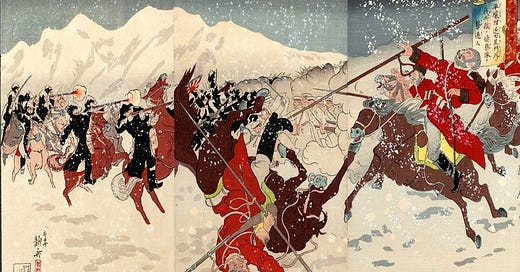The relationship between philosophy, strategy, and self-help is something I think a lot about, and this is just a sketch of what requires a longer treatise:
Strategy is the art of getting what you want, typically by overcoming some obstacle. To be a good strategist you need to know where you want to go and what stands in the way. But strategy, even grand…
Keep reading with a 7-day free trial
Subscribe to What Is Called Thinking? to keep reading this post and get 7 days of free access to the full post archives.



